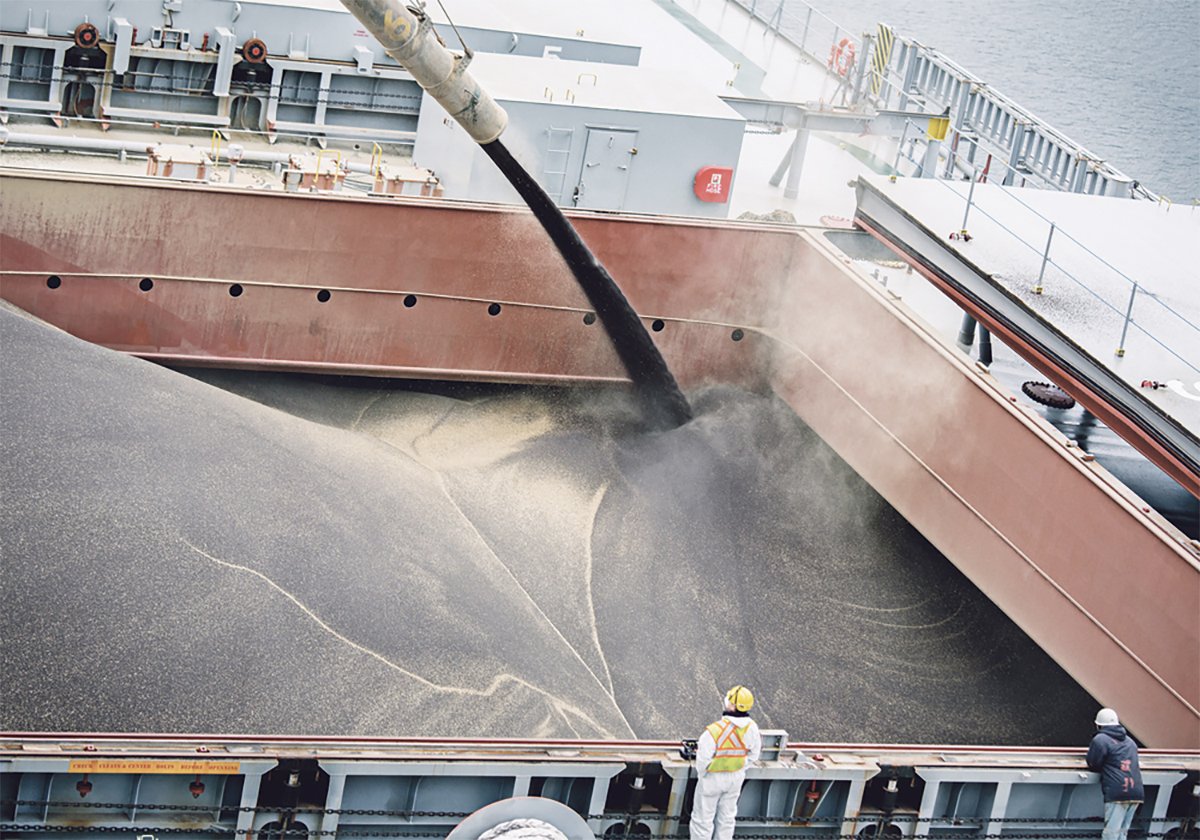Canada’s billion-dollar lentil industry is squabbling over whether it should continue to allow exports of dirty product.
Pulse processors shipping containers loaded with commercially cleaned product contend that bulk exporters are putting their businesses at risk by shipping farmer dressed product.
“One company can ruin it for an entire industry. I don’t like to have my future in the hands of people that have no regulation,” Murad Al-Katib, president of Alliance Grain Traders, told delegates attending the 2010 convention of the Inland Terminal Association of Canada.
Read Also

Exports off to a slow start after last year’s torrid pace
Canadian grain, oilseed and pulse exports are off to a slow start, but there are some bright spots, according to the Canadian Grain Commission’s most recent weekly export data report.
Kevin Hursh, executive director of ITAC, said his members can’t ignore the rapidly expanding lentil acreage. They are handling the crop even though they don’t have the proper cleaning equipment.
He said the dirty grain issue came to the forefront in 2009 when a bulk shipment of Canadian lentils that had not been commercially cleaned was temporarily prevented from entering Turkey because it contained genetically modified canola.
“For a while it looked like, ‘Oh my God, we’re going to have a trade restriction with one of our major lentil importers,’” he said.
A few days later, Turkey changed its mind and allowed the lentils through.
Al-Katib said Canada wouldn’t have dodged that bullet if Turkey hadn’t been desperately short of lentils that year. The same type of market restrictions that flax and canaryseed growers are facing could have confronted lentil growers.
He wants Canada to adopt regulations establishing minimum export standards for shipments of dirty grain to prevent that from happening.
“We’re putting our trade at risk without regulations,” Al-Katib told ITAC delegates. “That risk could bring us all to our knees.”
Andrew Travers, chief executive officer of Prairie West Terminal, a farmer owned inland terminal with operations in Plenty and Dodsland, Sask., said buyers and sellers should be able to dictate terms and conditions without the handcuffs of regulation.
“I’d really prefer the contract determines what I can and cannot ship,” he said.
Travers said that dirty shipments with more foreign material can increase the risk of running afoul of an importing country’s phytosanitary requirements but those risks can’t be eliminated by further processing the lentils.
He said there is a growing international demand for dirty product that allows farmers to move their expanding lentil production.
“I would argue that right now we can’t process it all to commercially clean, so it is important to have that other option to market it.”
One delegate said the debate was skirting the “800-pound gorilla” in the room, which is that big grain companies with terminal elevator facilities are starting to ship lentils in bulk at a significant transportation discount.
“We’re playing in a container market, which has a massive freight disadvantage,” said Milton Miller, chief executive officer of Providence Grain Solutions.
Al-Katib said there are only six or seven lentil buyers in the world that will buy bulk product, leaving thousands of other clients to fight over.
Travers said the Canadian government needs to ensure those lobbying for regulation are not simply attempting to block competition from bulk lentil shippers.
Al-Katib countered that if people are accusing him of self-interest, they are right.
“I’m all in favour of local processing, which creates local jobs and local wealth,” he said.
Dennis Stephens, consultant with the Canada Grains Council, said once regulations are in place, they are difficult to change.
Market realities change and what once looked like a good idea may become a hindrance.
“Make sure you’ve got a back door to get out but I don’t think you’ll find a back door. That’s the problem,” he said.
His solution is to allow buyers and sellers to establish the terms of the contracts and provide education to exporters to ensure they are also meeting all the phytosanitary requirements of the importing nation.
Stephens said the Canadian government won’t agree to regulation unless there is industry consensus.
“I think you’re a long way from a consensus position,” he said.

















